Introducing German Kinodia
November 1, 2010
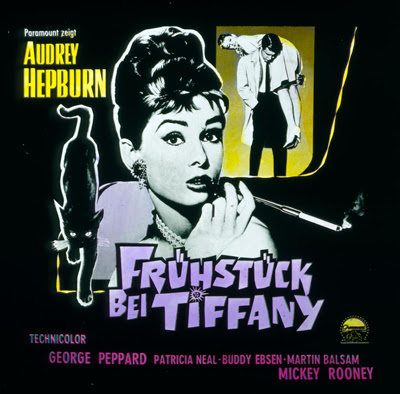
Thanks to a pointer from a good friend of mine (thanks Uli!) became aware of the German equivalent of coming attraction slides known as kinodia.
To this point I have located samples of these slides with dates ranging from 1921 through 1964, however it is not at all clear when the slides themselves were produced. For example, the slide advertising Buster Keaton shorts includes The Goat (1921)* but it is quite clear that the kinodia slide itself is contemporary with the slide for Jayne Mansfield film It Takes a Thief (1960). From that perspective, the only thing I can know for sure is that these slides were used at least as late as 1964, the year Kiss Me Stupid was released.
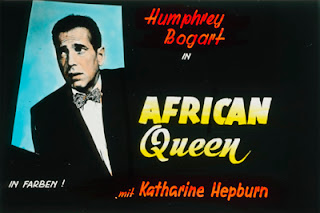
One interesting aspect of the slides that I have thus far located are that the images are printed on flexible transparent plastic instead of on a glass plate coated with photo emulsion. Additionally, these examples (admittedly, a very small sample size) consist only of this plastic material without any frame or backing.
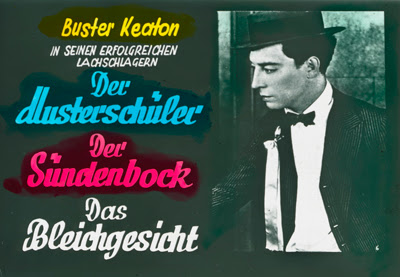
The physical dimensions transparencies are in several different dimensions, typically either 3 ¼ inches square 2 ½ by 2 ¼, or 2 by 2 ½ inches. However regardless of the of the physical size of the transparency, the actual slide images measure a uniform 2 ½ x 1 ¾ inches. This image size precisely with the image size of other European glass slides.
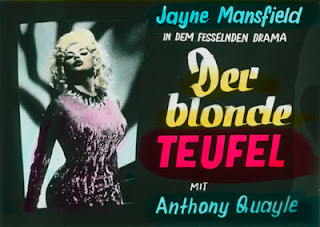
Based on these measurements, my currently working theory is that these transparencies were originally either sandwiched between glass panes, or mounted in some sort of frame, that measured to the standard European lantern slide dimension of 3 ¼ inches square.
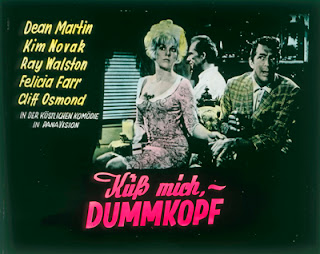
Clearly I have much work ahead to gain a fuller understanding the practice of this medium in German cinemas. I am exceptionally eager to hear from anyone who has information or can provide additional insight on the topic. Just click on the comments section below, or email directly to info@startsthursday.com.
* All captions are the original release titles from the film's country of origin - not a direct translation of the German. ...and speaking of translation, many many thanks to Helmut for his help in that regard.

![Et Dieu... créa la femme [...and God Created Woman] (1956)](https://www.startsthursday.com/wp-content/uploads/2022/03/KINODIA-and-God-Created-Woman.jpg)